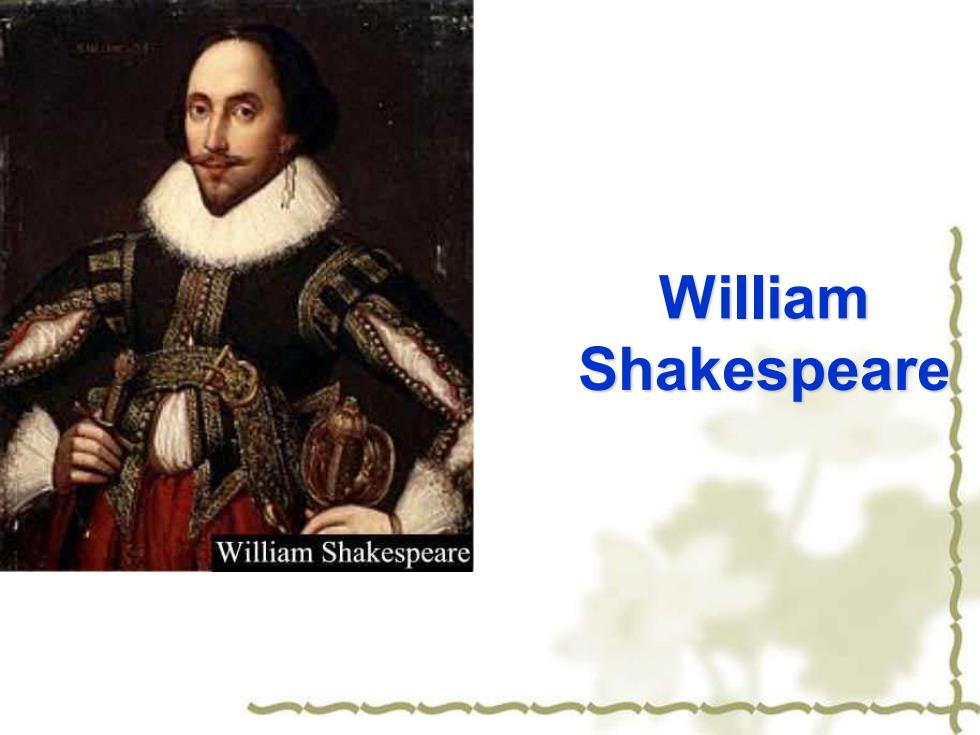
William Shakespeare William Shakespeare
William Shakespeare
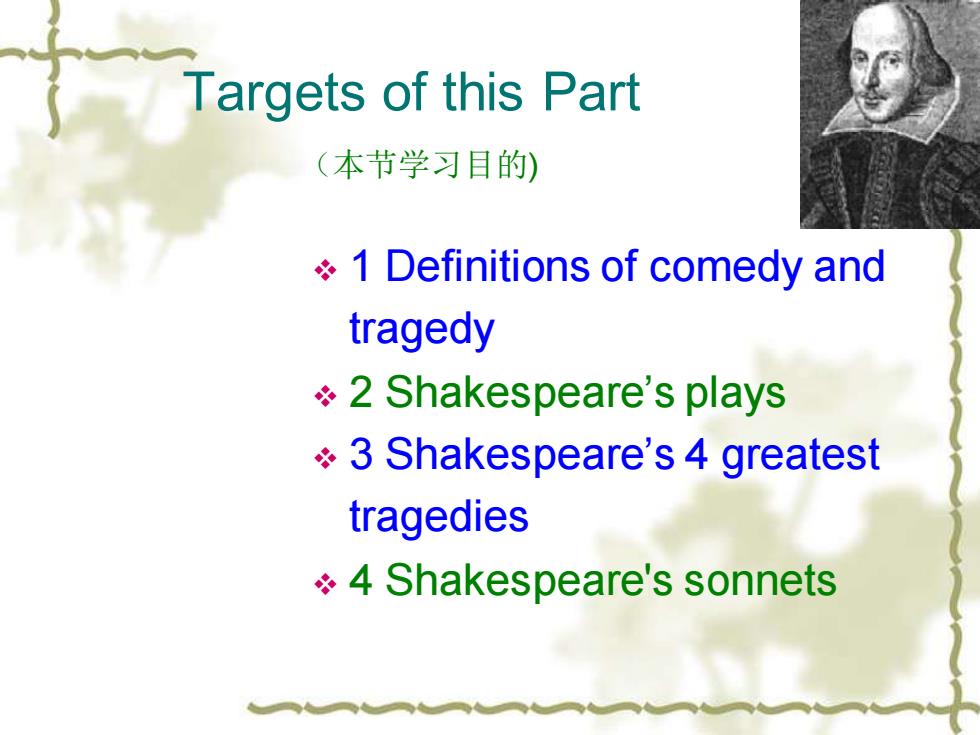
Targets of this Part (本节学习目的) 1 Definitions of comedy and tragedy 2 Shakespeare's plays 3 Shakespeare's 4 greatest tragedies 4 Shakespeare's sonnets
Targets of this Part (本节学习目的) ❖ 1 Definitions of comedy and tragedy ❖ 2 Shakespeare’s plays ❖ 3 Shakespeare’s 4 greatest tragedies ❖ 4 Shakespeare's sonnets
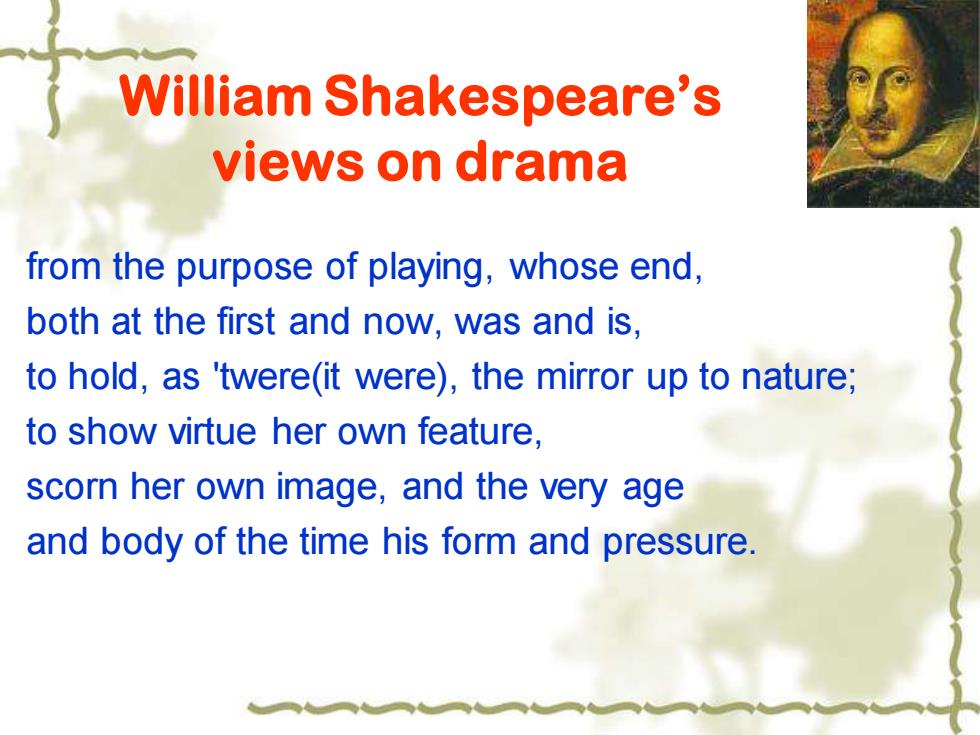
William Shakespeare's views on drama from the purpose of playing,whose end, both at the first and now,was and is. to hold,as 'twere(it were),the mirror up to nature; to show virtue her own feature, scorn her own image,and the very age and body of the time his form and pressure
William Shakespeare’s views on drama from the purpose of playing, whose end, both at the first and now, was and is, to hold, as 'twere(it were), the mirror up to nature; to show virtue her own feature, scorn her own image, and the very age and body of the time his form and pressure
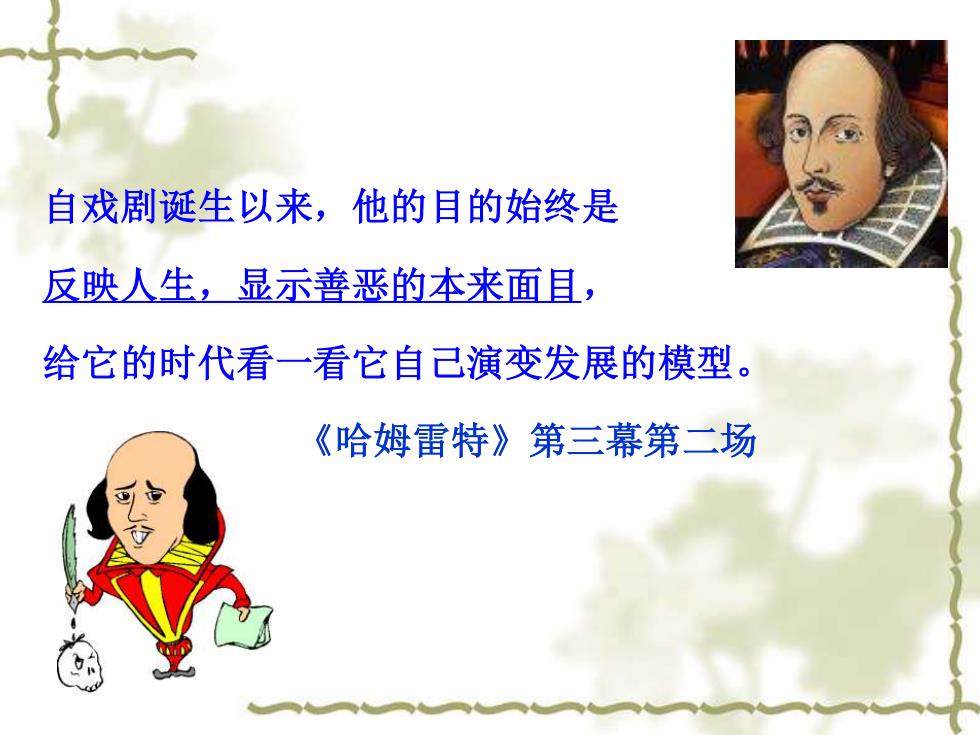
自戏剧诞生以来,他的目的始终是 反映人生,显示善恶的本来面且, 给它的时代看一看它自己演变发展的模型 《哈姆雷特》第三幕第二场
自戏剧诞生以来,他的目的始终是 反映人生,显示善恶的本来面目, 给它的时代看一看它自己演变发展的模型。 《哈姆雷特》第三幕第二场
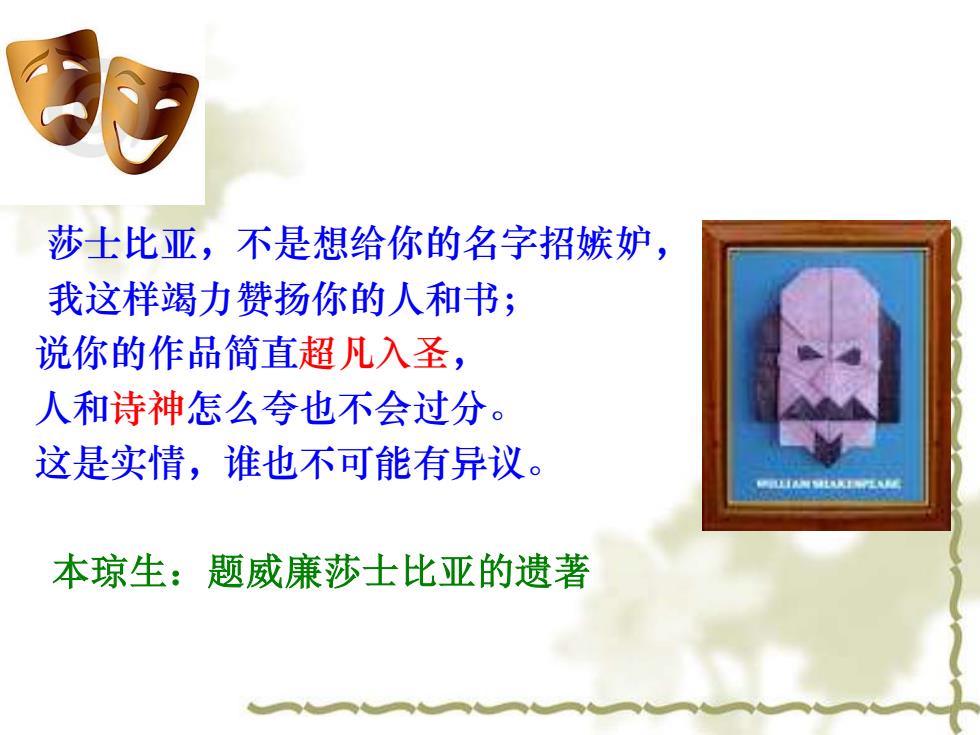
莎士比亚,不是想给你的名字招嫉妒, 我这样竭力赞扬你的人和书; 说你的作品简直超凡入圣, 人和诗神怎么夸也不会过分。 这是实情,谁也不可能有异议。 本琼生:题威廉莎士比亚的遗著
莎士比亚,不是想给你的名字招嫉妒, 我这样竭力赞扬你的人和书; 说你的作品简直超凡入圣, 人和诗神怎么夸也不会过分。 这是实情,谁也不可能有异议。 本琼生:题威廉莎士比亚的遗著